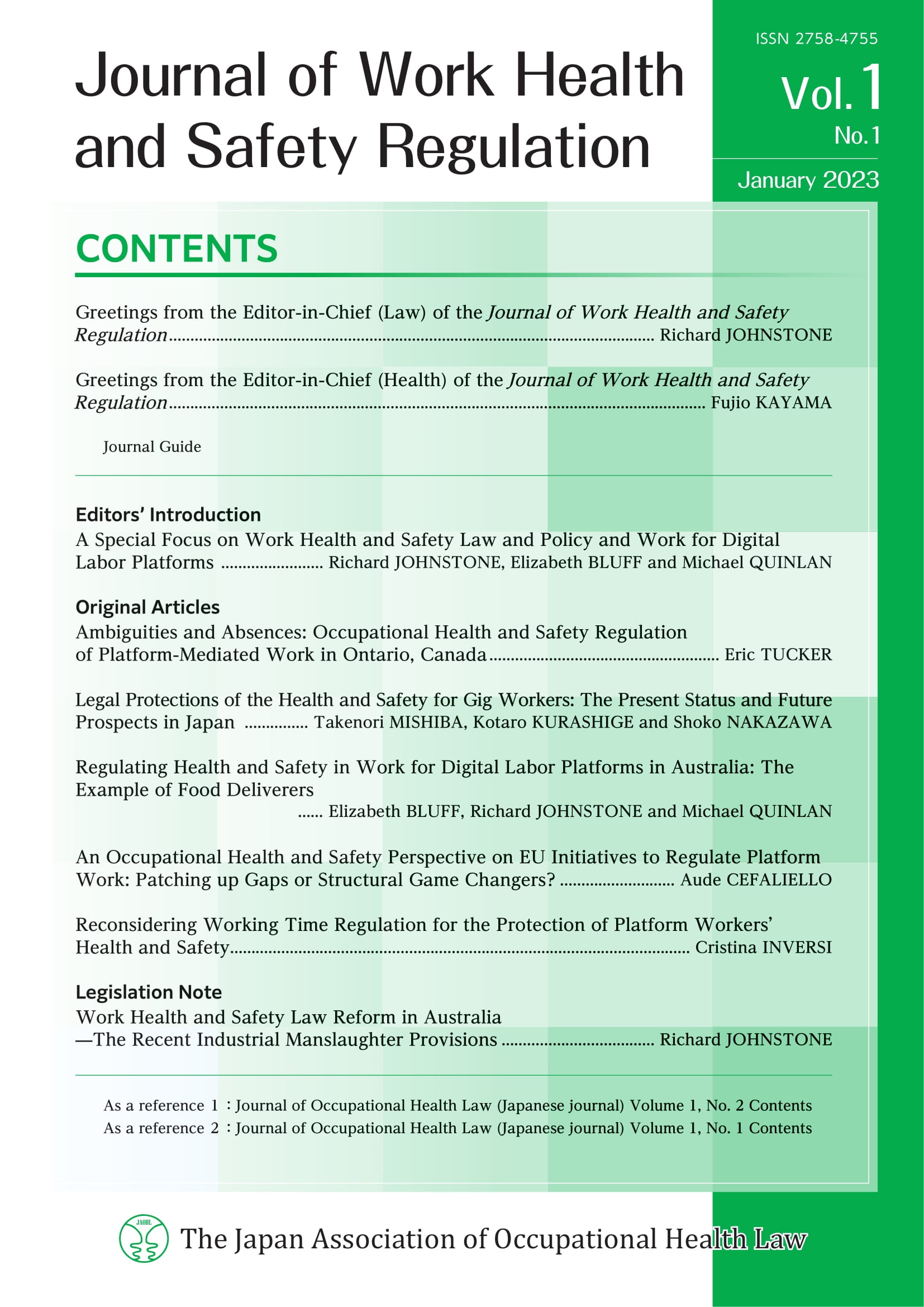Volume 1, Issue 1
Displaying 1-12 of 12 articles from this issue
- |<
- <
- 1
- >
- >|
Greetings
-
2023 Volume 1 Issue 1 Pages 1-2
Published: 2023
Released on J-STAGE: February 21, 2023
Download PDF (273K) -
2023 Volume 1 Issue 1 Pages 3
Published: 2023
Released on J-STAGE: February 21, 2023
Download PDF (263K)
Journal Guide
-
2023 Volume 1 Issue 1 Pages 5-16
Published: 2023
Released on J-STAGE: February 21, 2023
Download PDF (695K)
Editors` Introduction
-
2023 Volume 1 Issue 1 Pages 17-29
Published: 2023
Released on J-STAGE: February 21, 2023
Download PDF (406K)
Original Articles
-
2023 Volume 1 Issue 1 Pages 30-53
Published: 2023
Released on J-STAGE: February 21, 2023
Download PDF (580K) -
2023 Volume 1 Issue 1 Pages 54-91
Published: 2023
Released on J-STAGE: February 21, 2023
Download PDF (821K) -
2023 Volume 1 Issue 1 Pages 92-116
Published: 2023
Released on J-STAGE: February 21, 2023
Download PDF (624K) -
2023 Volume 1 Issue 1 Pages 117-137
Published: 2023
Released on J-STAGE: February 21, 2023
Download PDF (590K) -
2023 Volume 1 Issue 1 Pages 138-154
Published: 2023
Released on J-STAGE: February 21, 2023
Download PDF (451K)
Legislation Note
-
2023 Volume 1 Issue 1 Pages 155-163
Published: 2023
Released on J-STAGE: February 21, 2023
Download PDF (354K)
References
-
2023 Volume 1 Issue 1 Pages 164-169
Published: 2023
Released on J-STAGE: February 21, 2023
Download PDF (307K) -
2023 Volume 1 Issue 1 Pages 170-191
Published: 2023
Released on J-STAGE: February 21, 2023
Download PDF (432K)
- |<
- <
- 1
- >
- >|
